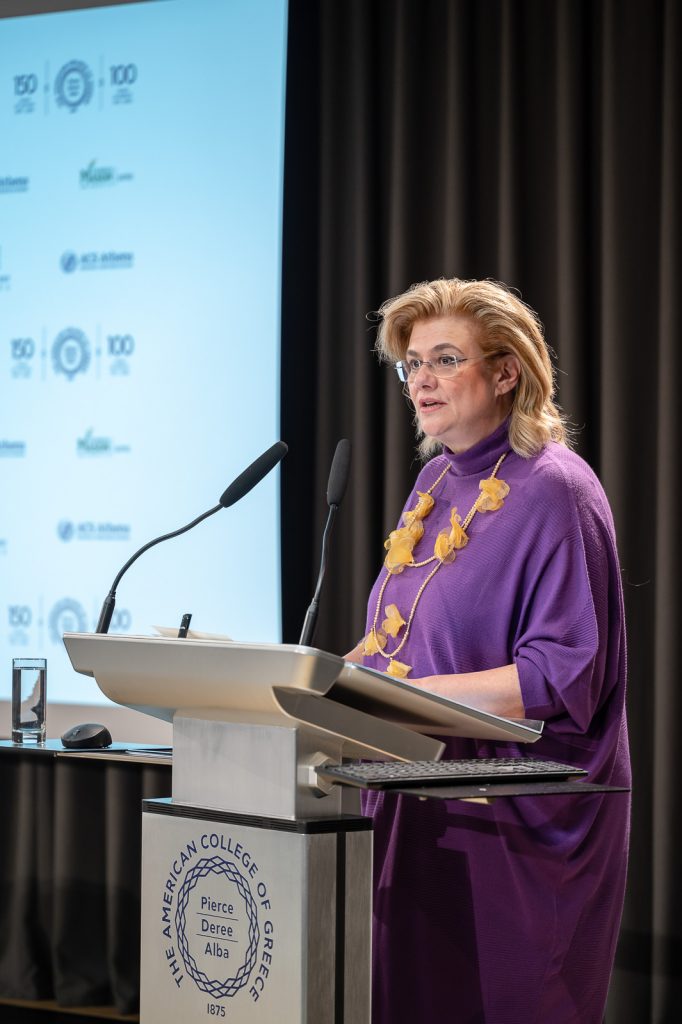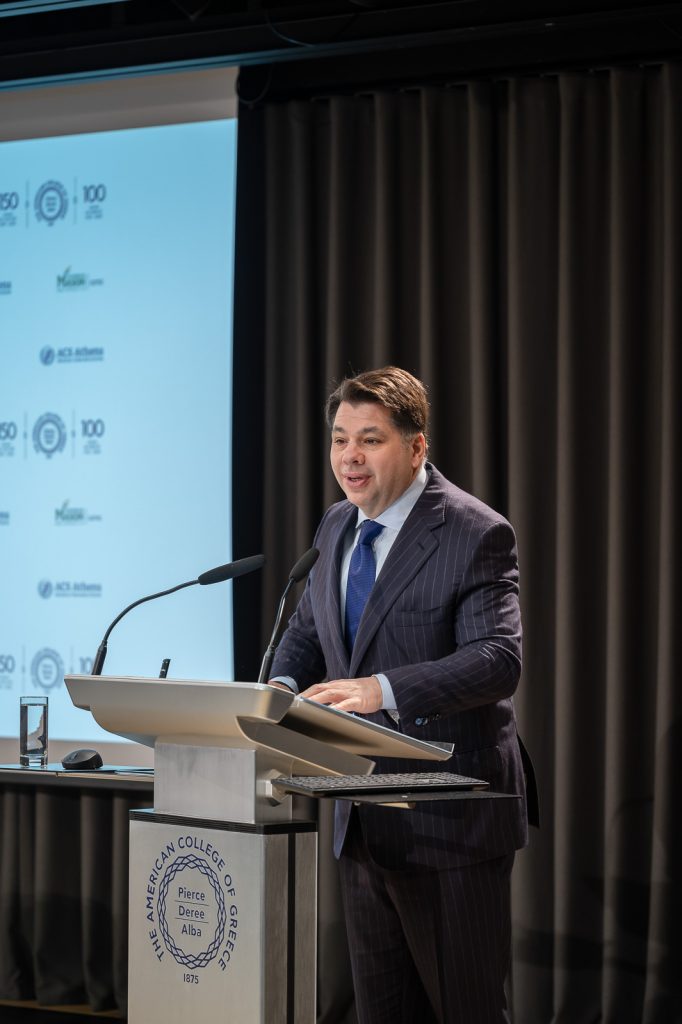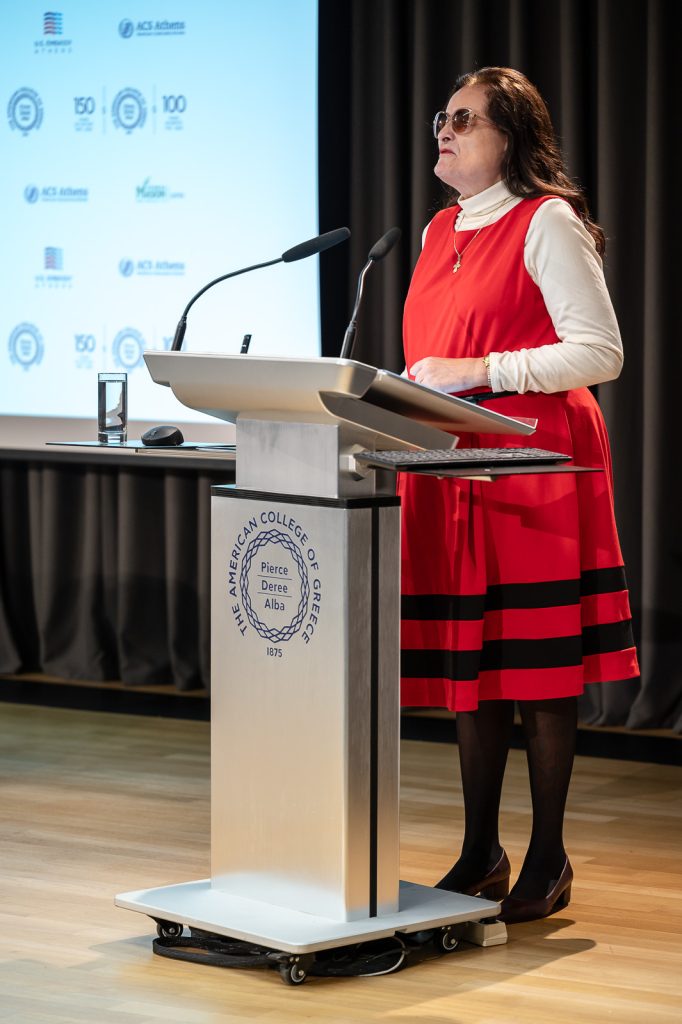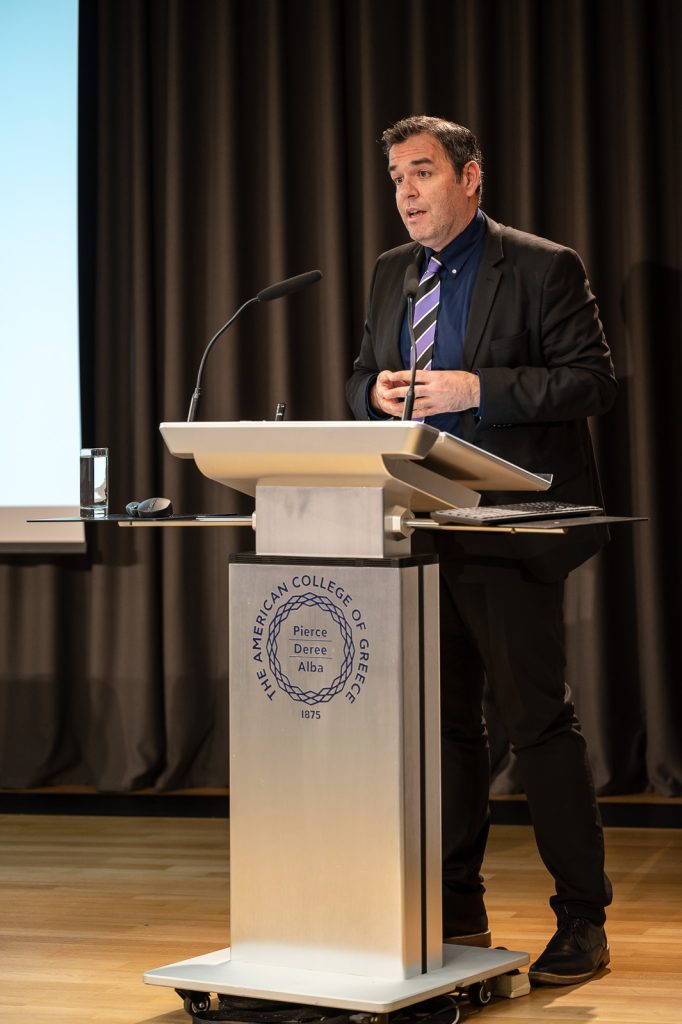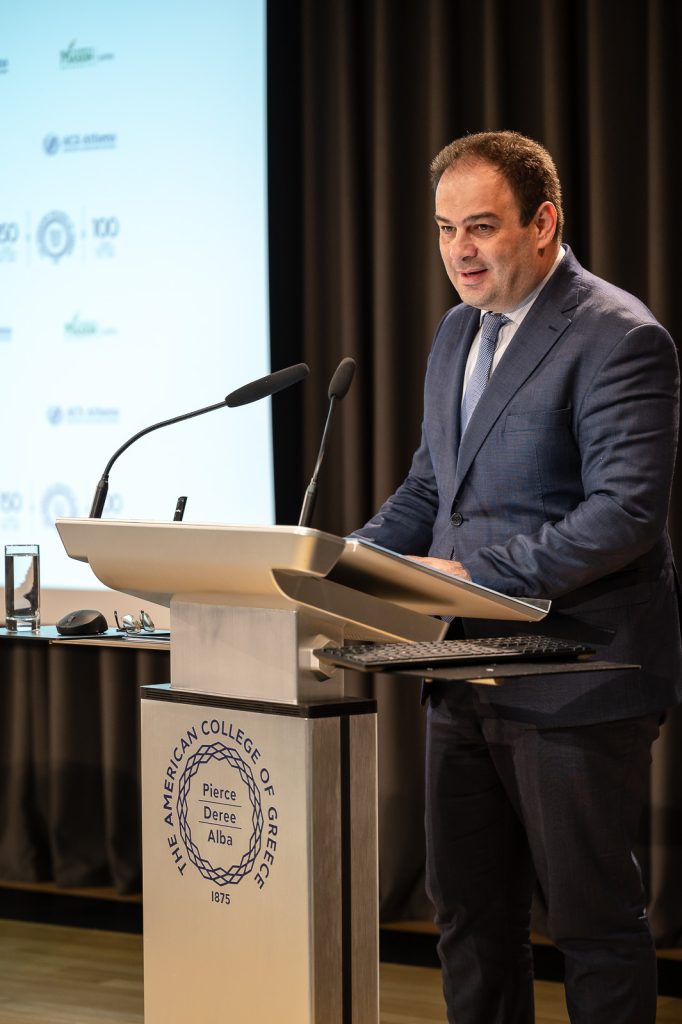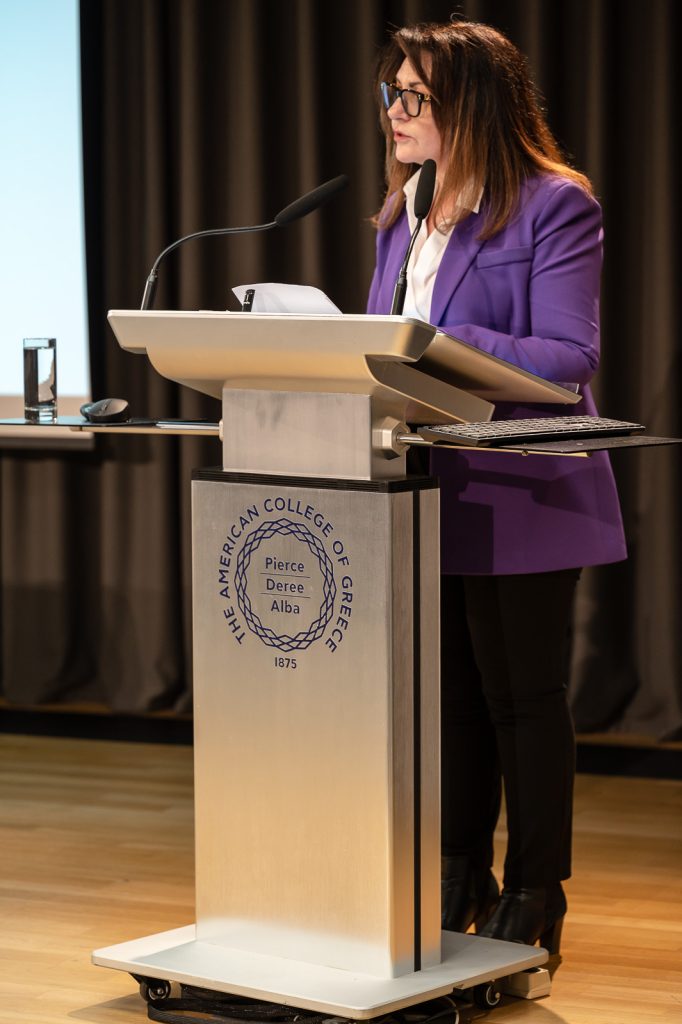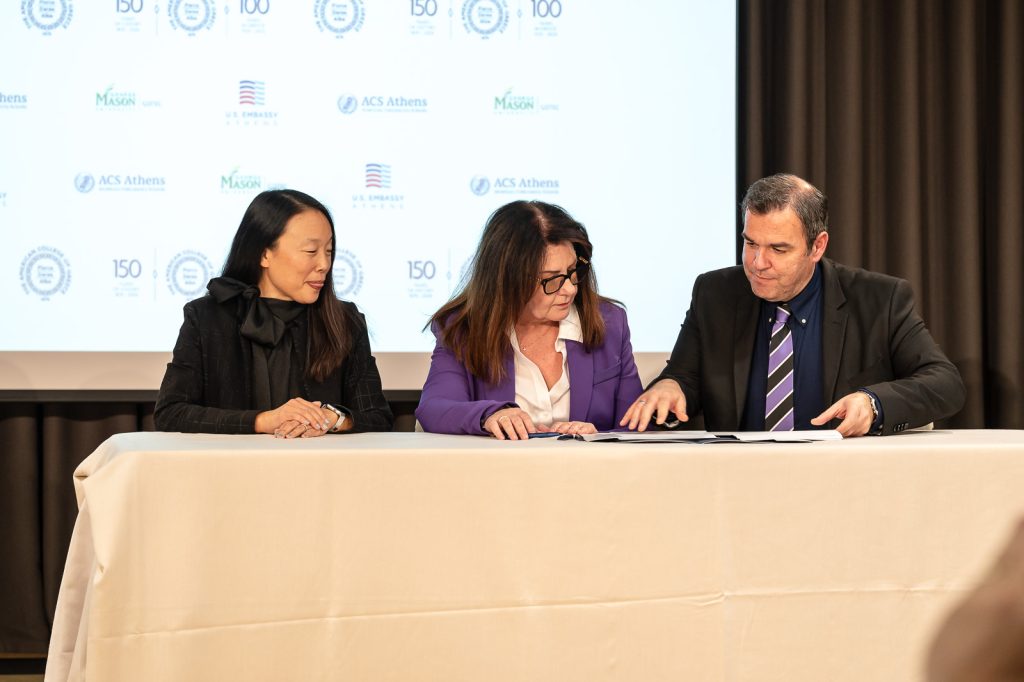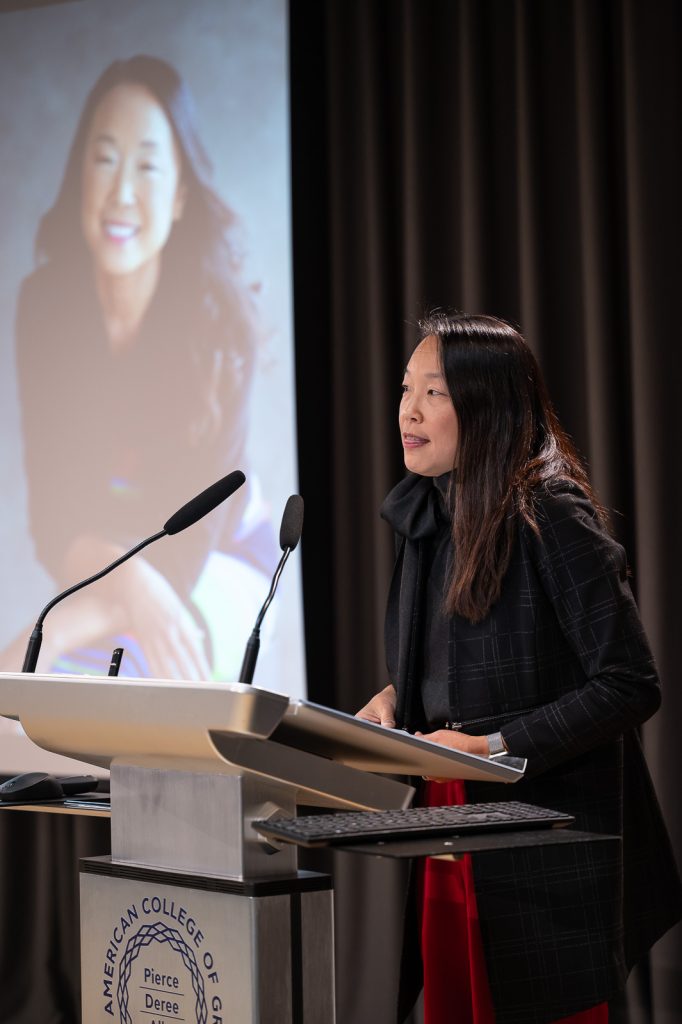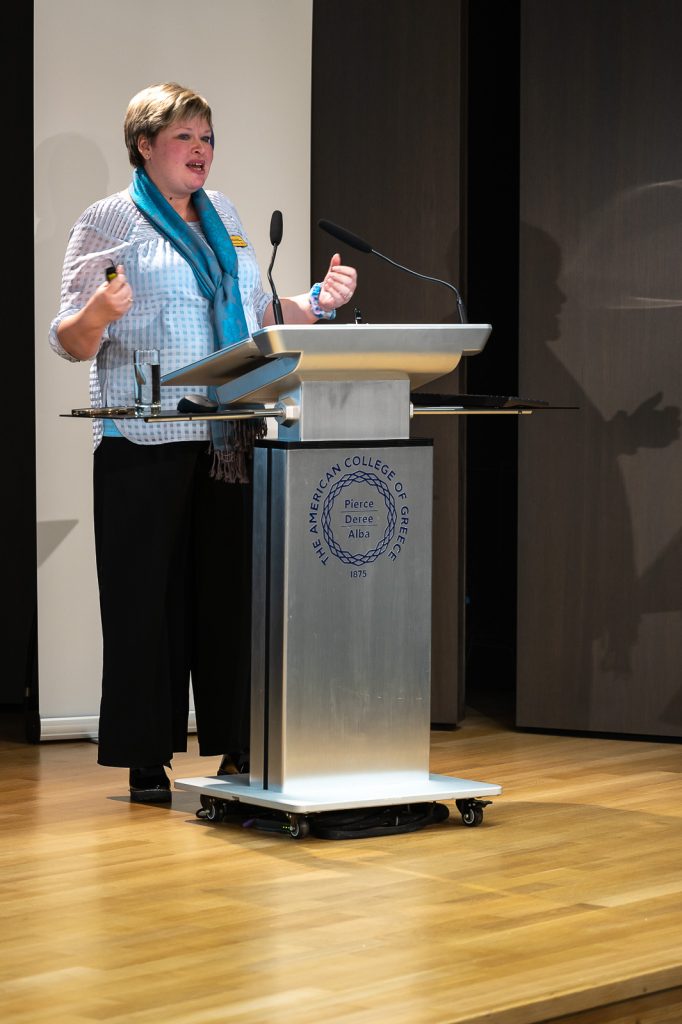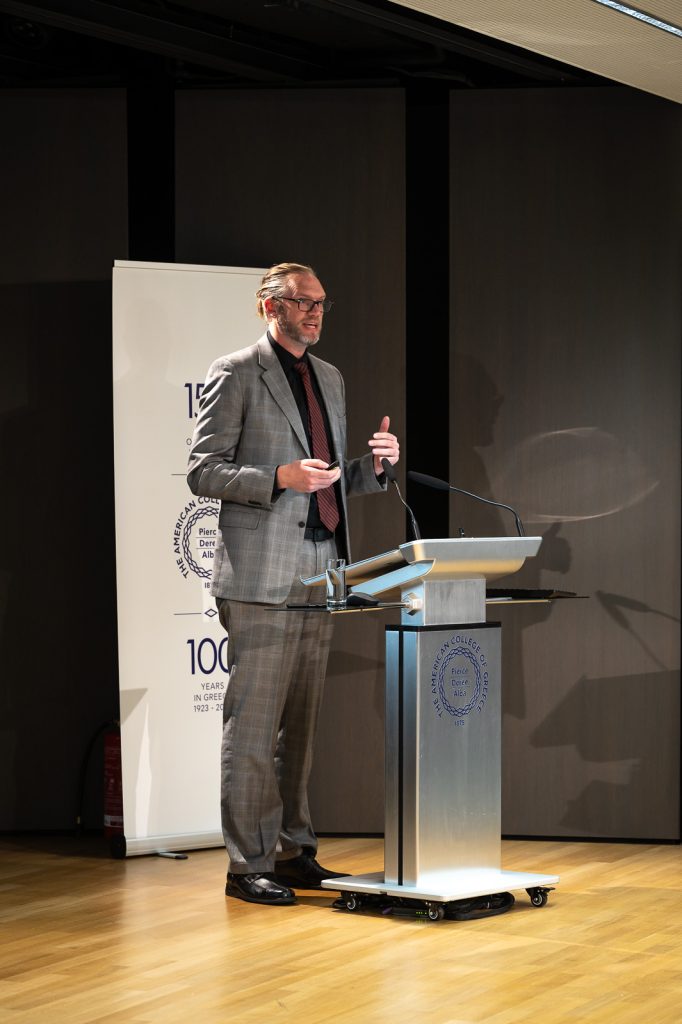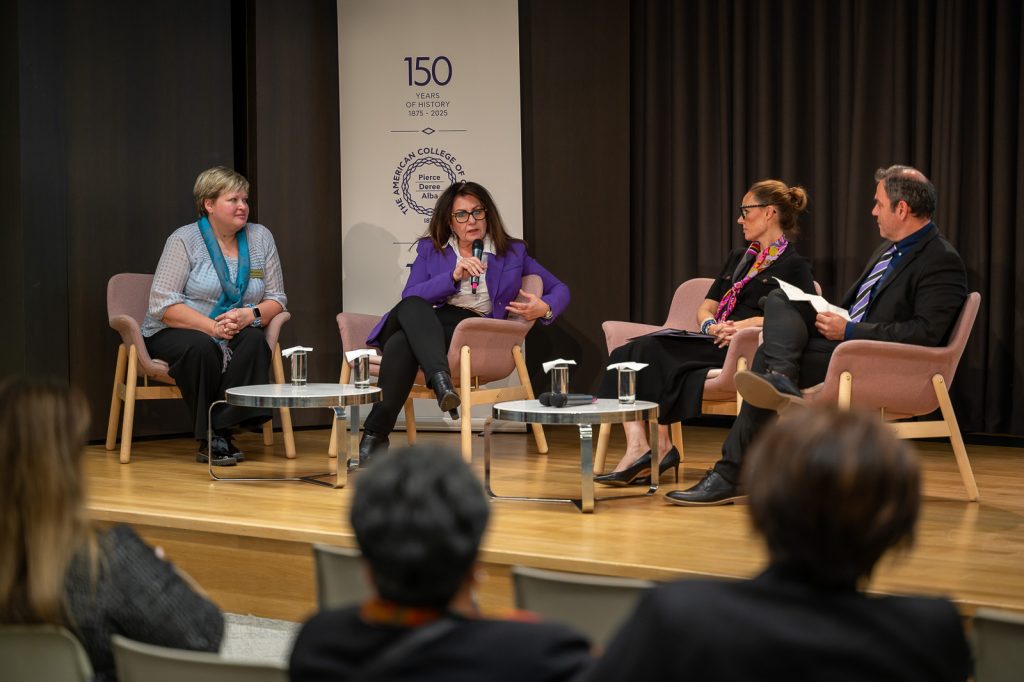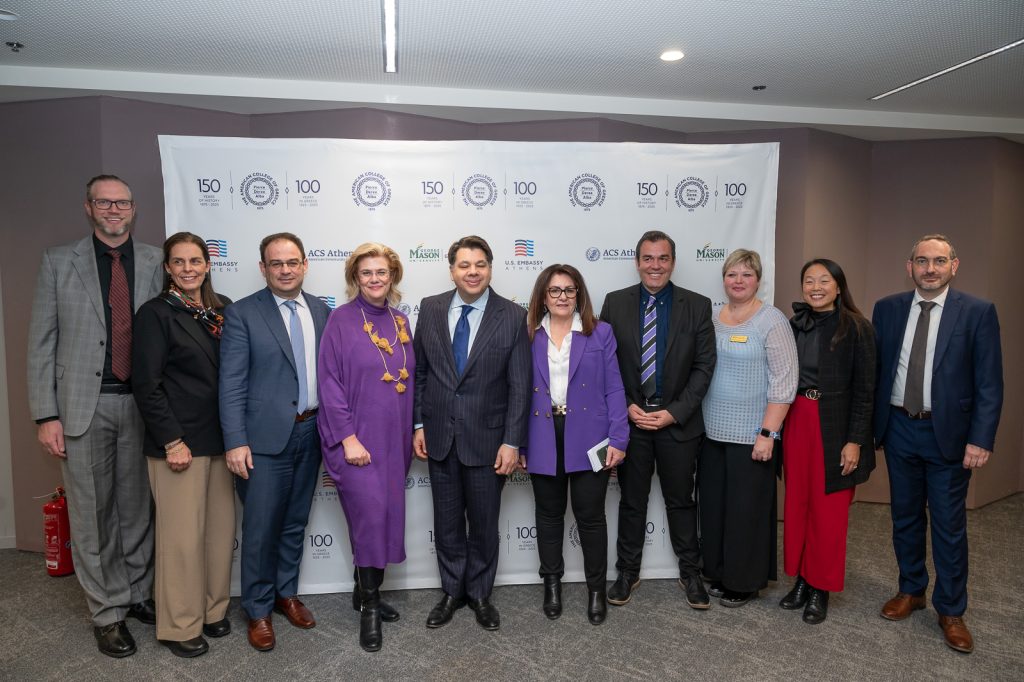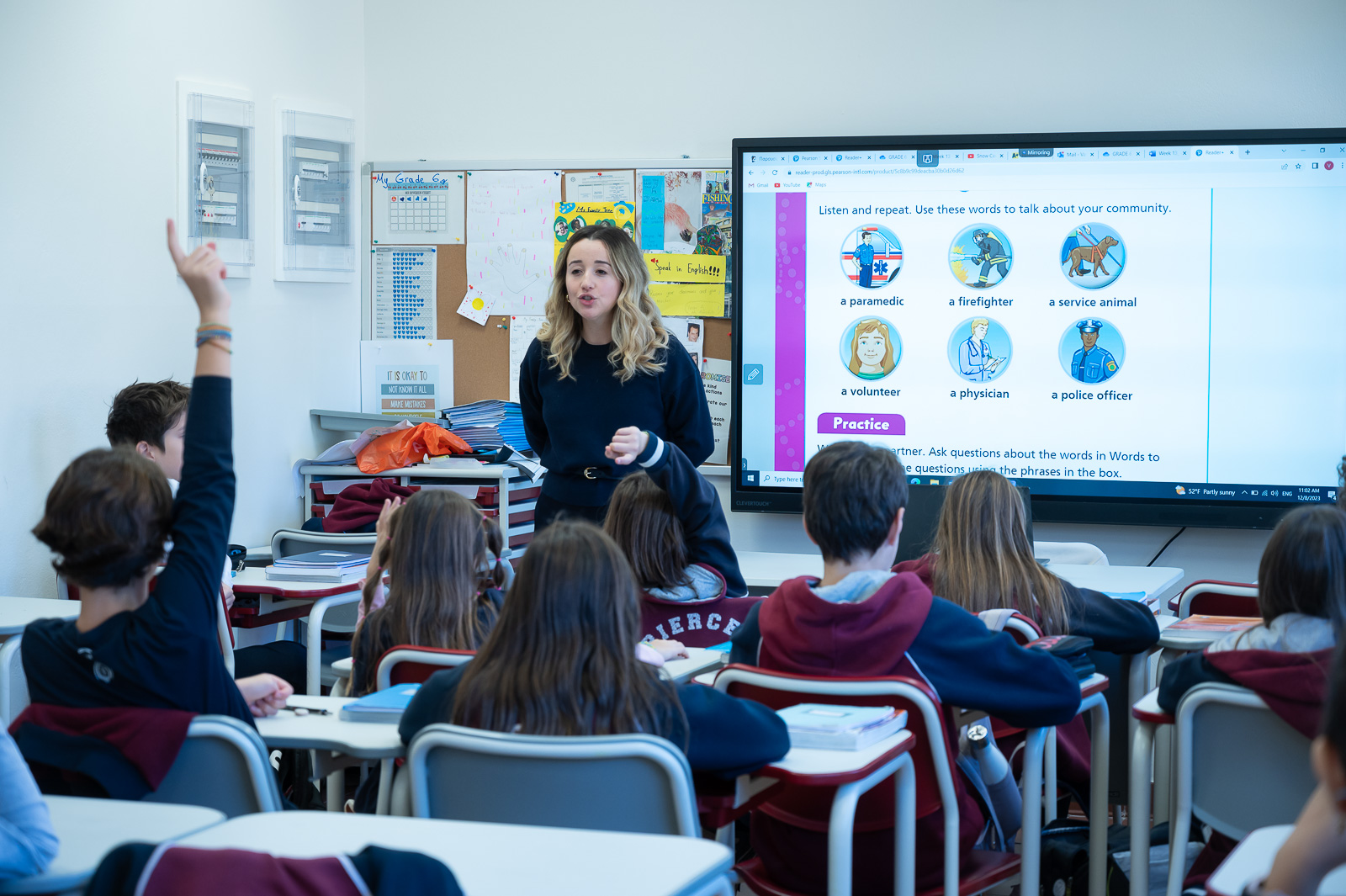
The inaugural event of the Athens Inclusive Education Project, held on December 8 at the ACG Events Hall, marked a historic milestone in a groundbreaking collaborative effort by ACG, George Mason University, and the American Community Schools of Athens, with the invaluable support of the US Embassy in Athens. The event, moderated by Haris Daskalothanassis, Executive Director for Outreach and Student Retention at Deree, set the stage for the ambitious goals of the initiative. This comprehensive professional development program for teachers plans to reshape the Greek educational landscape from primary to higher education sectors and aims to make a lasting impact on promoting inclusive learning environments and enhancing the skills of teachers to cater to diverse student needs. It focuses on areas of inclusive learning and teaching, special needs education, and universal design for learning and teaching. The event’s highlight was the signing of the Memorandum of Understanding (MoU), symbolizing a collective commitment to fostering inclusive and equitable education.
Iliana Lazana, Senior Vice President of Administration & Pierce, delivered the welcoming address on behalf of ACG President David G. Horner, emphasizing the primary goal of the Athens Inclusive Education project—to establish an educational environment where every student can thrive. The project is driven by a shared commitment to fostering inclusive and equitable education, recognizing and nurturing the unique strengths of each learner. ACG’s historical dedication to diversity and its active engagement in organizing initiatives align with the project’s mission, preparing students to contribute to a world that values the distinctiveness of all individuals.
H.E. George J. Tsunis, US Ambassador to the Hellenic Republic, took the stage and passionately emphasized the values of inclusivity and acceptance, acknowledging that he addressed an audience already attuned to these principles. Encouraging the converted to propagate these values to others, he recounted his parents’ journey as immigrants who rebuilt their lives in the US, underscoring the transformative impact of an outstanding public education—the great equalizer—experienced by himself and his sisters. Tsunis asserted that every student worldwide should have such opportunities, emphasizing the benefits of living in a democracy and the universal right for everyone to be accepted and afforded opportunities. He advocated for recognizing diverse learning styles and providing each child with the chance to become their best selves. Tsunis highlighted the significance of the Athens Inclusive Education project, initiated a year ago, aiming to bring positive change to Greece’s educational system and create a more opportunistic life. He underscored education’s role as a tool for social mobility and democracy, rooted in ancient Greek thought, praising the project’s commitment to valuing education and ensuring opportunities for all, leading to economic prosperity and true gender equality in the workforce by 2060. Tsunis concluded by urging against leaving anyone behind, promoting personal growth, and implementing shared values into actions, encapsulating his sentiment with his father’s aphorism: “Όχι λόγια, έργα.”
Panos Vlachopoulos, Ph.D., Vice President for Academic Affairs at Deree, reflecting on his first days at ACG, shared a poignant anecdote about meeting Kristin Roberts, Counselor for Public Affairs at the US Embassy in Athens. Their immediate connection to the concept of inclusive education propelled them to take swift action. Vlachopoulos emphasized the fundamental human right to provide all individuals with quality education and learning experiences. He underscored that inclusion goes beyond merely admitting diverse students; it necessitates a transformation in teaching methods, adaptation strategies, and the ability to benefit from the richness of diversity. Vlachopoulos advocated for collective efforts among schools to engage with teachers in both institutional and public sectors. He announced plans for smaller events leading to a culminating showcase, aiming to disseminate questionnaires to understand teaching practices in Greece and work directly with teachers in diverse classrooms, seeking support and encouragement from the audience.
Eleftheria Bernidaki-Aldous, Ph.D., Vice President of the National Accessibility Authority, a living example of inclusion and a Pierce ’70 alumna, took the stage to highlight ACG’s historic commitment to inclusion. As a blind student, she was given unparalleled opportunities at Pierce, showcasing ACG’s dedication to inclusivity long before it became a mandate. Bernidaki-Aldous stressed that this event unites the US and Greece across all levels of education, aligning with ACG’s identity. She emphasized the importance of initiatives for inclusion, considering them as implementations of mandates from the Convention on the Rights of Persons with Disabilities. Bernidaki-Aldous brought attention to the Prime Minister of Greece’s strategic plan announced on the national day of people with disabilities, aiming to implement a UN-mandated disability inclusion strategy in every ministry, making inclusivity obligatory in the workplace and society at large.
Spyridon Doukakis, Ph.D., Chair of the Institute of Educational Policy at the Hellenic Ministry of Education and Assistant Professor in the Department of Informatics at the Ionian University, highlighted the government’s advocacy for inclusivity in education, showcasing the groundbreaking digital material developed at https://prosvasimo.iep.edu.gr/el/. This resource caters to students with disabilities, addressing diverse needs such as deafness, special needs, and motor problems. Doukakis emphasized the importance of educational institutions in fostering an inclusive culture, creating spaces where every student feels seen, understood, and valued. ACG, according to Doukakis, stands as a guiding light in this endeavor.
Peggy Pelonis, Ed.D., President of American Community Schools of Athens, expressing a shared vision for fostering an inclusive environment deeply rooted in ancient Greece, emphasized the transformative power of education in unlocking individual potential. Beyond providing access to knowledge, Pelonis stressed the importance of empathy and understanding for every learner. Acknowledging the multifaceted challenges faced, she called for developing the skills to navigate successfully, aiming to build a world of respect and inclusivity. Pelonis recognized teachers as the lynchpin of every transformation, with the power to shape young minds and cultivate a love for knowledge. The project she advocated for calls for the advancement of inclusive education, with a call to action that every individual deserves the opportunity to learn and thrive. Pelonis highlighted classrooms as microcosms of a diverse society, where strengths are revealed, and the transformative power of education is seen in empowering teachers and encouraging holistic education. The collaboration she spoke of is positioned as a catalyst for progress, striving to create a world where every learner is heard, illuminating the path toward a more harmonious and just future.
The panel speakers, comprising experts in the field of education at George Mason University (GMU), offered profound insights into the transformative power of inclusive teaching and learning practices. Joan Kang Shin, Ph.D., Professor at GMU, highlighted the crucial role of diversity and inclusion in improving teaching and learning outcomes. She emphasized the importance of creating a classroom environment where all learners are embraced, supported, and feel safe expressing their views as individuals and members of groups. Shin advocated for a shift from a deficit-based approach to an asset-based approach, recognizing the unique assets and cultural backgrounds each learner brings to the classroom. She underscored the need for teachers to understand the diverse ways in which students learn and to incorporate these insights into their teaching methods. Shin encouraged a move away from standardized teaching approaches, urging educators to adapt to the unique strengths and cultural backgrounds of their students.
Anna Evmenova, Ph.D., Professor at GMU, passionately argued that inclusive education is not just a moral imperative but also leads to better education for all. She highlighted the staggering number of people with disabilities worldwide and stressed the importance of implementing inclusive education, especially during the pandemic when many children with disabilities were excluded from educational opportunities. Evmenova emphasized the evolution of inclusive education from various models to a contemporary approach where students are physically placed and learn with their peers. She advocated for a continuum of inclusive education, accommodating diverse needs through administrative support, professional development, and accessible instructional materials. Evmenova stressed the celebration of variability, calling for the removal of barriers and the design of inclusive instructions from the beginning. She introduced the concept of Universal Design for Learning (UDL), promoting multiple ways and options for presenting content, actions, and expressions to ensure equity and the success of all learners.
Jered Borup, Ph.D., Associate Professor at GMU, focused on leveraging technology for the benefit of all learners, highlighting the importance of methods in learning and performance. He introduced blended learning and flipped learning methods as innovative approaches to enhance the learning experience. Borup emphasized the benefits of providing learners with additional opportunities through technology, creating a more inclusive and accessible educational environment.
The subsequent panel discussion, featuring Dr. Evmenova, Dr. Pelonis, Kristin Roberts, and Dr. Vlachopoulos, touched on crucial points. Dr. Evmenova emphasized the importance of not reinventing the wheel and adapting to inclusive education. Dr. Pelonis highlighted the significance of considering how students feel about themselves during learning, emphasizing the need for a systemic school approach supported by administration and continuous professional development. Ms. Roberts stressed the paradigm shift in thinking about people with disabilities, affirming that every child is a valuable member of society. The panel discussion underscored the ongoing journey of learning in inclusive education, with a shared goal of developing expert learners through the Universal Design for Learning (UDL) and active parental engagement. The speakers collectively aimed to eliminate stigma, foster a sense of belonging and worthiness, and propel education toward a more inclusive and equitable future.
The Athens Inclusive Education Project sets out to be a catalyst for progress, with the shared commitment to create a world where every learner is heard and valued. The event concluded on a hopeful note, highlighting the ongoing journey toward inclusive education and the collective responsibility to ensure every individual has the opportunity to learn, thrive, and contribute meaningfully to society.

